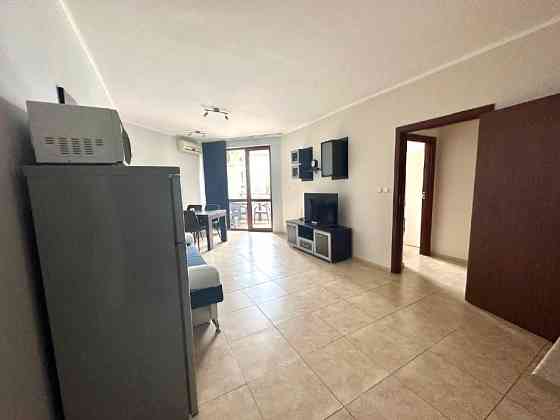
Regulation of short-term rental housing in the Czech Republic — what awaits the market
Major changes are coming to the short-term rental housing sector in the Czech Republic. The government has approved a package of legislative amendments that aims to address a number of pressing issues related to overtourism, noise violations and unaffordable housing for local residents. The innovations will affect the work of popular online platforms such as Airbnb and will significantly affect the real estate market as a whole. Let's figure out what awaits landlords, tourists and local residents in light of the upcoming changes.
Key aspects of the new rules
- One of the main innovations will be the mandatory registration of all properties rented out for short-term rent in the e-Turista electronic system. This will allow the Czech Ministry of Regional Development to gain full control over the market, track the number of landlords and tourists, and collect the necessary taxes and fees in a timely manner. Registration will be a mandatory condition for posting ads on online platforms. The launch of the e-Turista system is scheduled for July 2025, after a trial period at the beginning of the year. This will give landlords time to prepare for the new requirements and bring their activities into compliance with the law.
- Czech municipalities will be given broad powers to regulate the short-term rental market in their territory. They will be able to independently determine the number of permits for renting out housing, set the periods and the maximum number of days per year when this will be allowed. In addition, municipalities will be responsible for determining the maximum number of guests depending on the area of the premises. This approach will allow for the specifics of each region and city, their tourist attractiveness and housing situation to be taken into account. Local authorities will be able to respond more flexibly to the challenges and needs of their residents, regulating the short-term rental market in accordance with the local context.
- The new rules will have the greatest impact on Prague, the main tourist center of the Czech Republic. As of April last year, the city had more than 8,000 apartments intended for short-term stays. Most of them are controlled by landlords who own several properties, which exacerbates the problem of a shortage of affordable long-term housing for local residents.
- The new regulation is intended to address a number of problems associated with short-term rentals in large cities:
- Market opacity — online platforms often refused to share data on the number of tourists, which made control difficult and led to lost taxes and fees. The e-Turista system should correct this situation.
- Noise violations — local residents often complain about noise and inappropriate behavior of tourists renting short-term accommodation. The new rules will help to solve this problem through restrictions imposed by municipalities.
- Housing affordability — the reorientation of many properties to short-term rentals has led to a shortage of affordable housing for long-term living. It is expected that a reduction in the number of apartments rented out on a daily basis will free up some of the stock for local residents.
Install our app and get all the tools you need to search for real estate abroad in your smartphone! The mobile application will allow you to quickly access your personal account, manage your favorite properties and track your requests, directly exchange messages with sellers and buyers.

Economic consequences and impact on the market
- The introduction of the new rules will inevitably affect economic indicators and the state of the real estate market in the Czech Republic. Online platforms specializing in short-term rentals will face stricter regulation and will have to adapt to new requirements. This may lead to a reduction in their revenue and slower growth.
- On the other hand, limiting the number of properties available for short-term rent may contribute to a decrease in real estate prices in general. Many apartments and houses previously aimed at tourists will return to the long-term rental and sale market, which will increase the supply and make housing more affordable for local residents.
- An important aspect is the tax issue. Until now, many landlords evaded paying taxes and fees, which led to significant losses for the budget. The introduction of the e-Turista system is designed to solve this problem and ensure market transparency. Municipalities will receive accurate data on the number of landlords and tourists, which will allow them to collect all necessary payments in a timely manner.
Outlook and Expectations
The new short-term rental regulations in the Czech Republic are an important step towards creating a more balanced and sustainable real estate market. They are expected to help address a number of pressing issues related to overtourism and provide locals with better access to housing. However, like any major change, the new regulations may face certain difficulties and resistance. Landlords and online platforms may be unhappy with the increased controls and restrictions, which will require additional efforts to adapt their businesses. Nevertheless, the long-term outlook is positive. The Czech Republic is taking important steps to ensure transparency, fairness and sustainability of the short-term rental market. A balanced approach that takes into account the interests of all parties — tourists, landlords and locals — will allow the country to maximize the benefits of tourism development while minimizing the negative consequences.
In conclusion, the new short-term rental regulations in the Czech Republic mark an important turning point for the real estate market and the country's tourism industry. The introduction of the e-Turista system and the expansion of municipal powers are intended to address a number of pressing issues, such as market opacity, noise violations and the lack of affordable housing. Although adapting to the new requirements may be difficult for some market participants, these measures are expected to bring positive results in the long term. A more transparent and regulated short-term rental market will contribute to the sustainable development of tourism, ensure fair conditions for all players and help maintain a balance between the interests of tourists and local residents.
The Czech Republic’s experience in this area can serve as an example for other countries facing similar challenges. A flexible and adaptive regulatory approach that takes into account local characteristics and needs is the key to successfully managing the short-term rental market in a rapidly changing world. It remains to be seen how the new rules will be implemented in practice and what results they will bring in the coming years. But one thing is certain: the Czech Republic is taking an important step towards a more sustainable, transparent and balanced future in the short-term rental industry.
 9
9
 6
6
 25.1
25.1  1
1  1
1  1
1  2
2  15
15
 18
18

New Zealand has radically reformed its investment visa program, turning it into one of the most accessible and flexible in the world. The removal of language requirements, a reduction in mandatory length of stay and an expansion of investment opportunities have led to a sharp increase in interest from foreign investors. We will tell you about the details of the reform, the benefits for investors and the impact on the region's economy.

House and rental prices in the EU continued their record growth in 2024, with real estate prices up 4.9% and rents up 3.2%. The Baltic and Central European countries such as Estonia, Lithuania and Hungary led the way, while some Western European countries experienced a cooling market. Experts predict a slowdown in price growth in 2025. We offer a detailed analysis of the trends and influencing factors.

Branded Residences are the next big thing in luxury real estate. Created in partnership with iconic brands, these luxury projects offer investors a unique combination of status, comfort and financial benefits. Find out why branded residences have become the number one choice for wealthy buyers around the world and how to become part of this exclusive club.


























